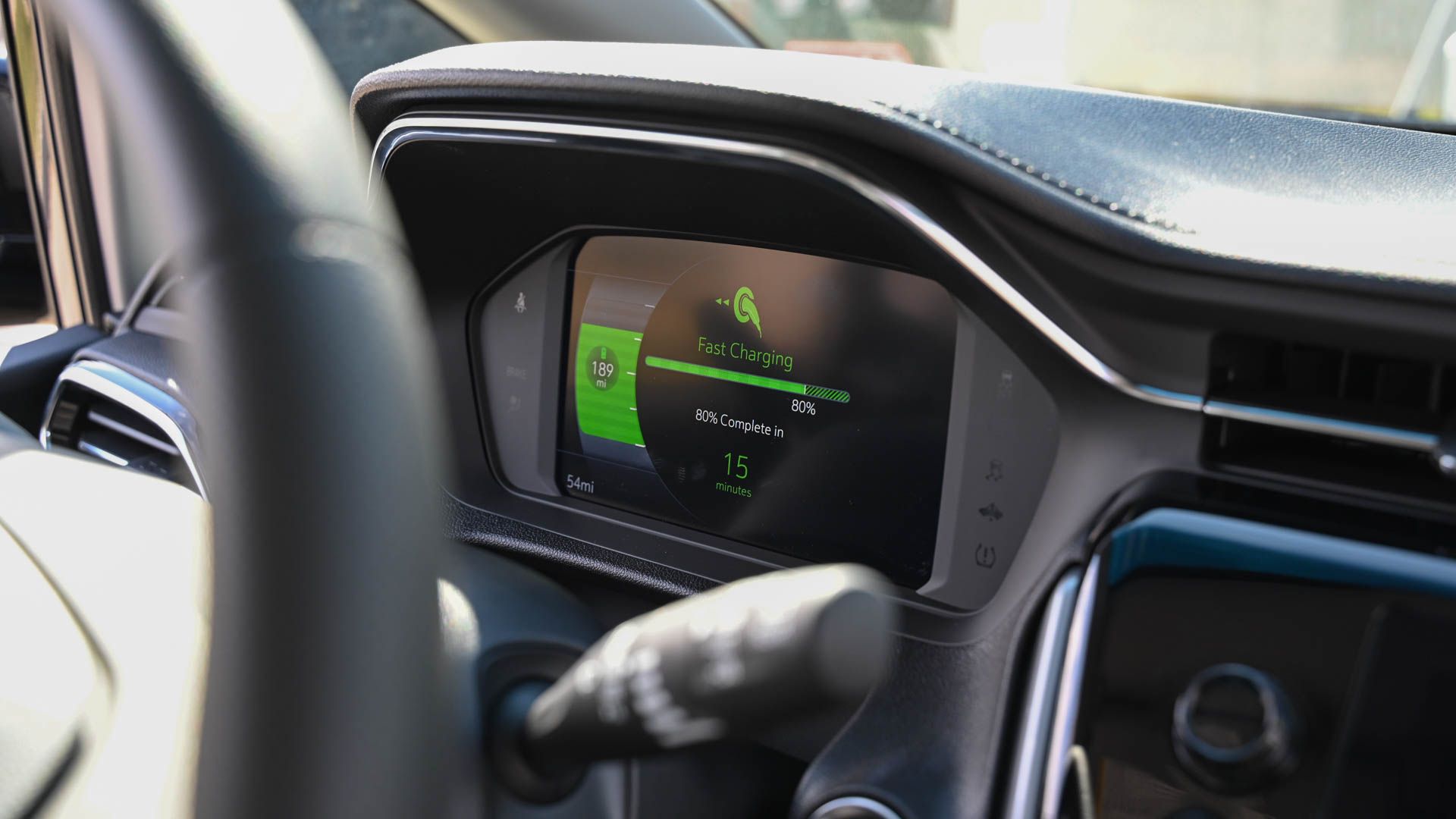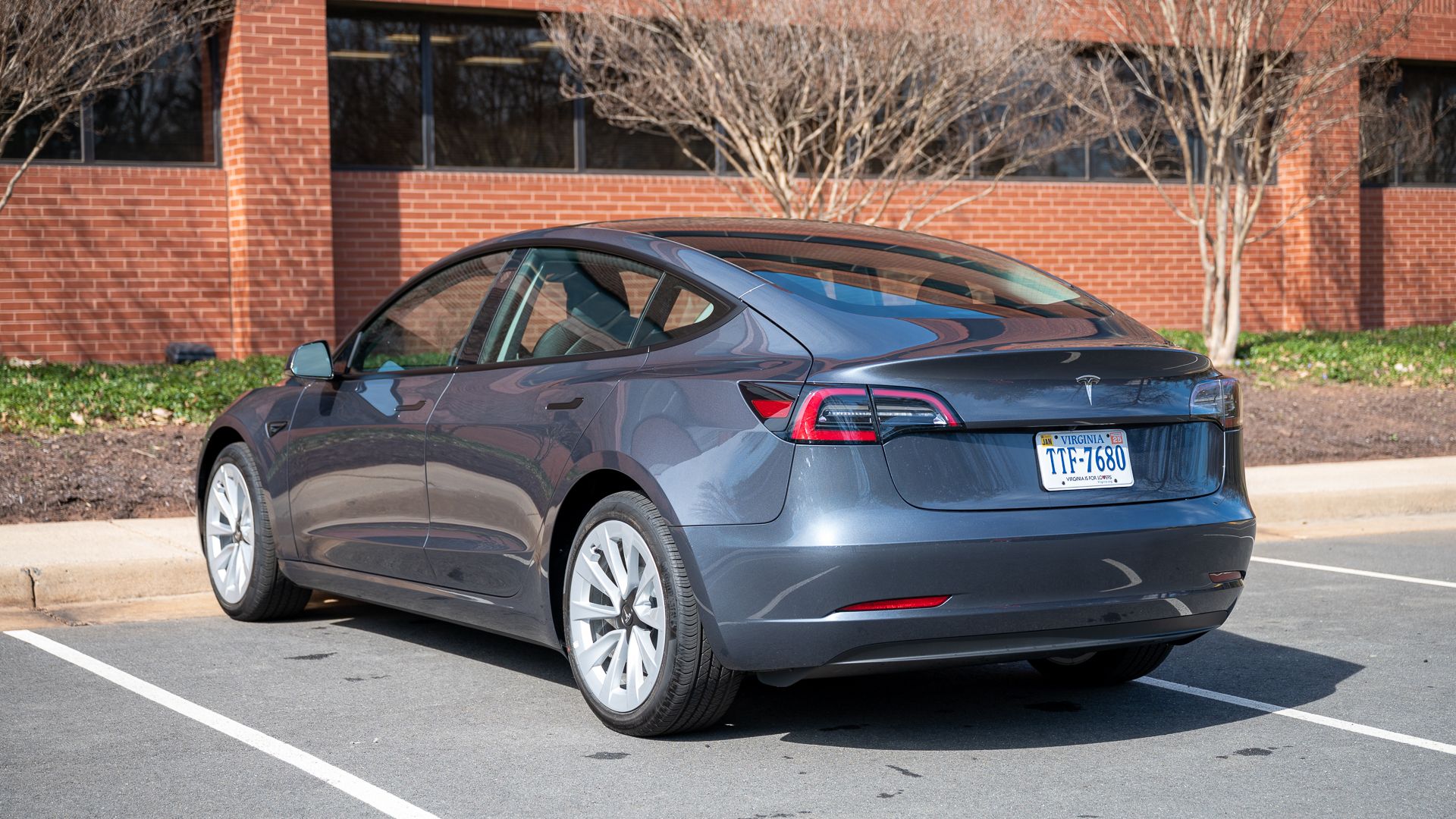
Acceptance in EV Battery Limitations: Why We Shouldn't Expect a Dramatic Increase

Acceptance in EV Battery Limitations: Why We Shouldn’t Expect a Dramatic Increase
Electric car technology is quickly improving, but range and charging are still big talking points, as no one wants to get stuck with no way or place to recharge. Sure, there are growing pains and advancements with any new technology, but ranges likely won’t increase by much, and that’s fine.
Modern electric cars have been in our lives for over a decade, whether that’s the Nissan Leaf or Tesla Model S, and we’ve seen huge advancements in the space. Better or faster EVs are constantly being announced, and upcoming improvements promise to change the game. At the same time, manufacturers are looking to lower costs, release more affordable models, and cut excess weight, all while making vehicles bigger, better, and faster. As a result, something has to give.
Don’t Expect Big EV Range Increases

Hannah Stryker / How-To Geek
Think about it. Each new electric car that gets announced pushes the boundaries in almost every area, all while battery technology remains mostly the same. High-resolution screens and cameras everywhere, loads of safety and autonomous features, dozens of driving modes, crab walk, self-driving technology, bidirectional charging , etc. All of which drains the battery, resulting in mostly unmoved (or worse) travel ranges.
You can see the same phenomenon in the smartphone in your pocket. Why do phone batteries still only last a day , even while technology has improved by leaps and bounds? Apple and Samsung are adding larger battery packs, but we’re also getting giant screens, faster 5G speeds, better cameras, AI smarts, and more power-hungry processors to handle all those tasks. Electric vehicles will likely experience the same fate.
Sure, Tesla’s original Model S from 2012 could only go around 265 miles per charge, while the latest variant is capable of 405 miles. That’s undoubtedly a nice bump, but these days, almost every new electric car announced goes between 200–300 miles at max. Even on long-range variants or higher trims.
That’s because EVs are at an inflection point. And while there are promising advancements like solid-state EV batteries delivering 700 miles per charge, there’s a good chance we’ll never get that. Electric cars are expensive. One of the easiest ways to lower costs is to use smaller battery cells with less range. Even if all those solid-state promises or new battery tech arrives, I highly doubt Toyota and Chevrolet will release models that can go 700 miles. Instead, we’ll get compact vehicles, smaller battery cells, and more affordable cars with less range. All while the technology, screens, and software features require more juice.
Here’s Why That’s Fine

Justin Duino / How-To Geek
Do we even need vehicles that can travel that far on a single charge? I don’t think so. My gas-powered truck and my EV don’t, and I get around perfectly fine. Consider your daily or weekly commute and how often you get gas. Many current electric vehicle owners only charge the car once every 2–3 weeks, if not less. That’s especially true for those with 10–15 mile commutes to and from work.
Longer road trips driving an EV are where you’ll start to run into potential issues with the range or the dreaded “range anxiety” feeling. But that also depends on your region, infrastructure, and the route you take. Even then, you can use EV charging apps to find a nearby station or search for one inside Google Maps .
The other half of that is public infrastructure, which is dramatically increasing all the time. Tesla has Supercharger stations nationwide with more coming, oil companies are jumping into EV charging , and soon, most manufacturers will employ NACS-capable vehicles and chargers that are compatible with Tesla’s ever-expanding network.
It won’t matter if you can “only” go roughly 300 miles when you can stop almost anywhere and get another 150 miles of range after 7–10 minutes on the charger. I think advancement and growth in the charging infrastructure is a far bigger factor than each vehicle’s range, but that’s just me. Either way, there’s a good chance the driving range for most electric cars isn’t going to improve much from where things currently sit, and I’m ok with that.
Also read:
- [New] Sony X1000D Vivid - Full Action Cam Test
- [New] The Art of Subscriber Chatter Best Practices for Comments
- [Updated] The A-to-Z Guide to Recording Games Using OBS
- 2024 Approved The Great Digital Debate Meta Vs. Omni
- 2024 Approved The Premier Intro List for Panzoids
- 2024 Approved Unveiling This Year's Most Engaging Storytelling YouTubers
- Discover Snapshot Storage on Windows PC
- Fix Your iPhones Vibrating Problem During Silent & Ring Modules: A Guide to 8 Solutions
- Latest SteelSeries Software Update for Seamless Windows 11 Gaming Experience - Free Download
- New In 2024, MP4 Video Editing Made Easy A Beginners Guide for Mac and Windows
- Phone Buying Hacks: Secrets of Shopping Smart for New Technology
- Transformative Typography in After Effects for 2024
- Title: Acceptance in EV Battery Limitations: Why We Shouldn't Expect a Dramatic Increase
- Author: Daniel
- Created at : 2025-03-01 22:09:49
- Updated at : 2025-03-05 18:41:21
- Link: https://some-skills.techidaily.com/acceptance-in-ev-battery-limitations-why-we-shouldnt-expect-a-dramatic-increase/
- License: This work is licensed under CC BY-NC-SA 4.0.